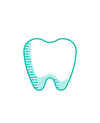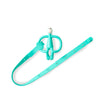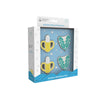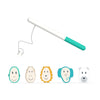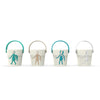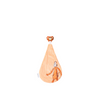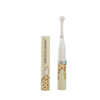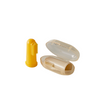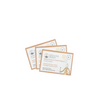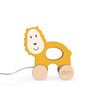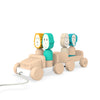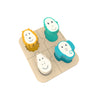Thumbsucking: The Benefits and Drawbacks
The Good
Despite what you might have heard, there are actually some benefits to thumb-sucking for young infants! Research has found that babies who suck their thumbs or bite their nails are introducing dead forms of bacteria and allergens into their system, which works somewhat like a vaccine, introducing these elements in minor amounts to help their immune systems to build! Children who suck their thumbs in infancy have been found to be less likely to suffer from allergies, so it’s worth allowing them to do what comes naturally - at least for the first few months!
The Bad
The problems brought on by thumb-sucking tend to be realised a little later, and can include dental problems such as crossbite or overbite as their teeth start cutting through, as well potentially forming an anxious tendency that can be difficult to do away with. Age is a big factor here: there may be benefits for infants at the start of their lives, but thumb sucking can cause problems after a few years if it becomes a habit. Children who are still sucking their thumbs at ages 4-5 and up are more likely to see associated dental issues, so it’s important to try and wean them off by this age!
The Solutions
Oral fixations are perfectly normal for babies and young children, who often put more than just their thumbs in their mouths! And as it’s impossible to keep watch on your baby 24/7 to make sure that their thumb and fingers don’t creep into their mouth, it’s important to give your child alternatives…
Children from ages 6 months to 2-3 years might be sucking on or chewing their thumbs and fingers to help ease the discomfort of teething, in which case a good quality teether with varied textures is an excellent substitute for one’s own body, and can help to teach your child to self-soothe! Pacifiers fulfil a similar function, though they don’t actively soothe teething pains and can be difficult to wean off from later.
Once their teeth start coming through and they begin a solid diet, nibbly vegetables such as carrot sticks are also a good replacement for thumbs, and provide your child with extra nutrients to boot!
If these tactics don’t work, you may have to resort to more extreme solutions, such as using bitter nail polish which makes your child’s fingers taste sour, discouraging them from putting them in their mouth - but remember, this is a last resort! Positive reinforcement, teethers, pacifiers, and carrot sticks should be your first points of call.

